If you're a student buried under a mountain of assignments, last-minute projects, part-time jobs, and erratic sleep schedules—welcome to the club. I’ve been there. And trust me, figuring out how to manage your time isn’t just a “nice-to-have” skill. It’s essential.
This post is here to share real-life, practical time management tips for students that actually work. No fluffy advice. No “just wake up earlier” nonsense. Just smart strategies, tools, and habits that have helped real students take control of their time—and their success.
Let’s dive in.
Why Time Management Matters for Students
Before we go into the tips, let me answer the big question: What is time management, and why should you care?
In simple terms, time management is about organizing your time wisely so you can balance everything without losing your mind. Whether it’s acing an exam, finishing a paper, hitting the gym, or just getting enough sleep—managing your time well is the key to unlocking it all.
When I finally figured out how to take control of my schedule, it felt like I had discovered a life hack. You go from constantly playing catch-up to owning your day.
1. Setting Clear Goals and Priorities
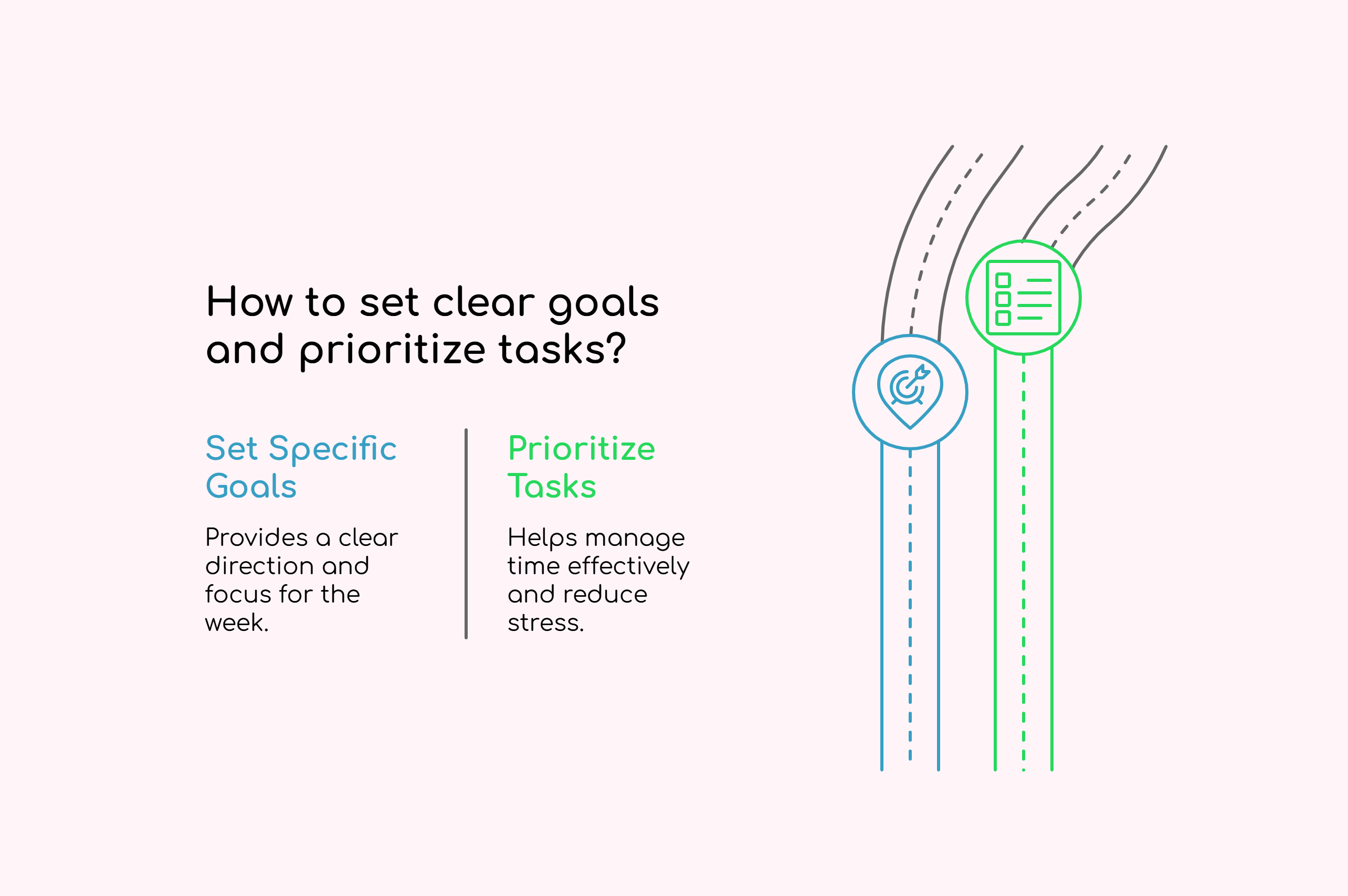
First things first—you need a direction.
Trying to manage your time without clear goals is like trying to drive to a destination with no GPS. You’ll end up wasting energy, circling around aimlessly.
Here’s what worked for me:
Set specific goals for the week. (Not “study more,” but “Review Chapters 3-5 for Chem.”)
Prioritize tasks using something like the Eisenhower Matrix or the ABC method.
Need help mastering prioritization? You’ll love Mastering Prioritization: The Student's Guide to Getting Things Done (Without the Stress).
And if you're wondering how prioritization can actually help you succeed long-term, check out How Prioritization Boosts Academic Success: Smart Strategies for Students.
2. Creating an Effective Daily and Weekly Study Schedule
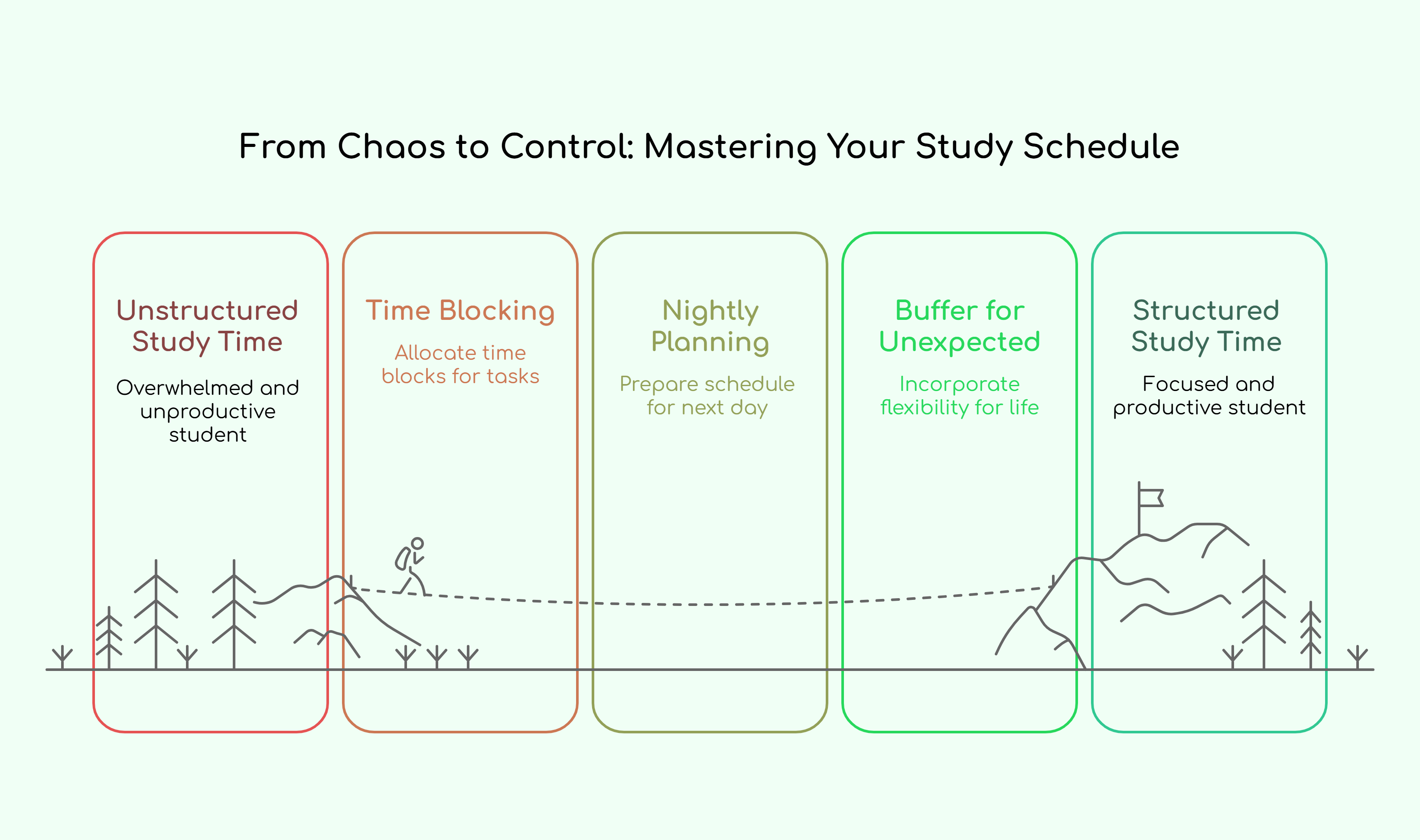
Planning out your week can make or break your productivity.
I started by using time blocking, a method where you assign chunks of time on your calendar for specific tasks.
What helped me most?
Blocking time for studying, breaks, and life
Planning the night before
Making room for the unexpected (because life happens)
Want to give it a try? Start with Time Blocking for Studying: The Smartest Way to Beat Stress, Focus, and Get More Done. And if you're new to the concept, Mastering Time Blocking: The Ultimate Guide to Taking Control of Your Day is your go-to breakdown.
3. Balancing Studies and Extracurricular Activities
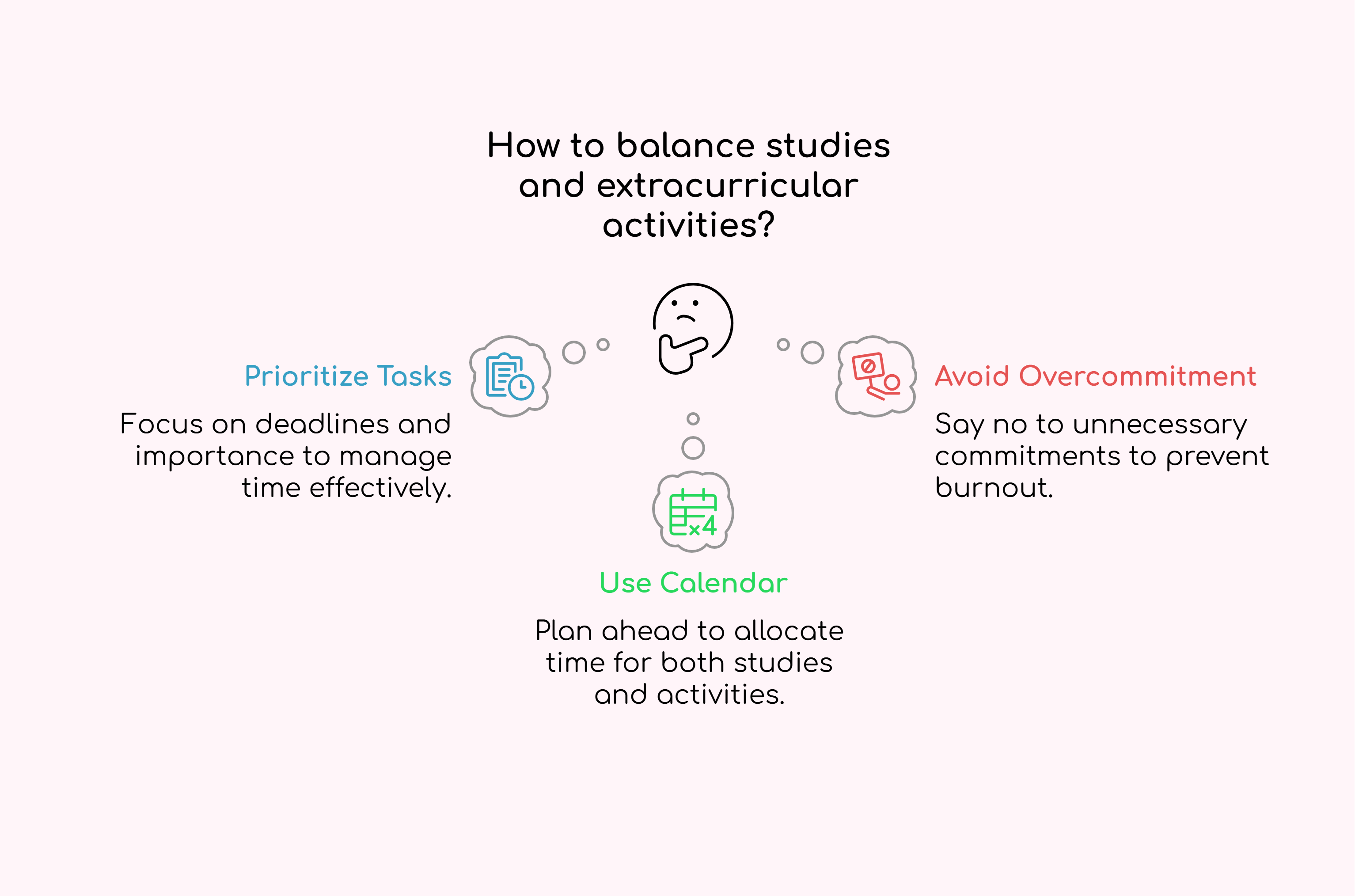
Your schedule shouldn’t be all books, all the time.
Balance is key. And yes, it's possible to stay on top of your studies and make time for sports, clubs, a part-time job, or that Netflix binge (no judgment).
Here’s how I strike a balance:
Prioritize based on deadlines and importance
Avoid overcommitting—you don’t need to say yes to everything
Use your calendar to look ahead and plan smartly
This isn’t about doing everything, but about doing what matters most with intention.
4. Setting Realistic Deadlines and Staying Accountable
One of the biggest lies we tell ourselves? “I’ll just do it later.”
Nope. Doesn’t work. I’ve tried.
What helped me was setting mini-deadlines—basically breaking projects into smaller steps with their own due dates.
Try it:
Break big tasks into smaller ones with clear checkpoints
Use accountability tools or a study buddy (peer pressure, but productive!)
Celebrate mini-wins to stay motivated
You can also get inspired by How to Build a Personalized Time Management Strategy That Works for You—it's a game-changer if you’re struggling with motivation.
5. Avoiding Procrastination and Managing Distractions
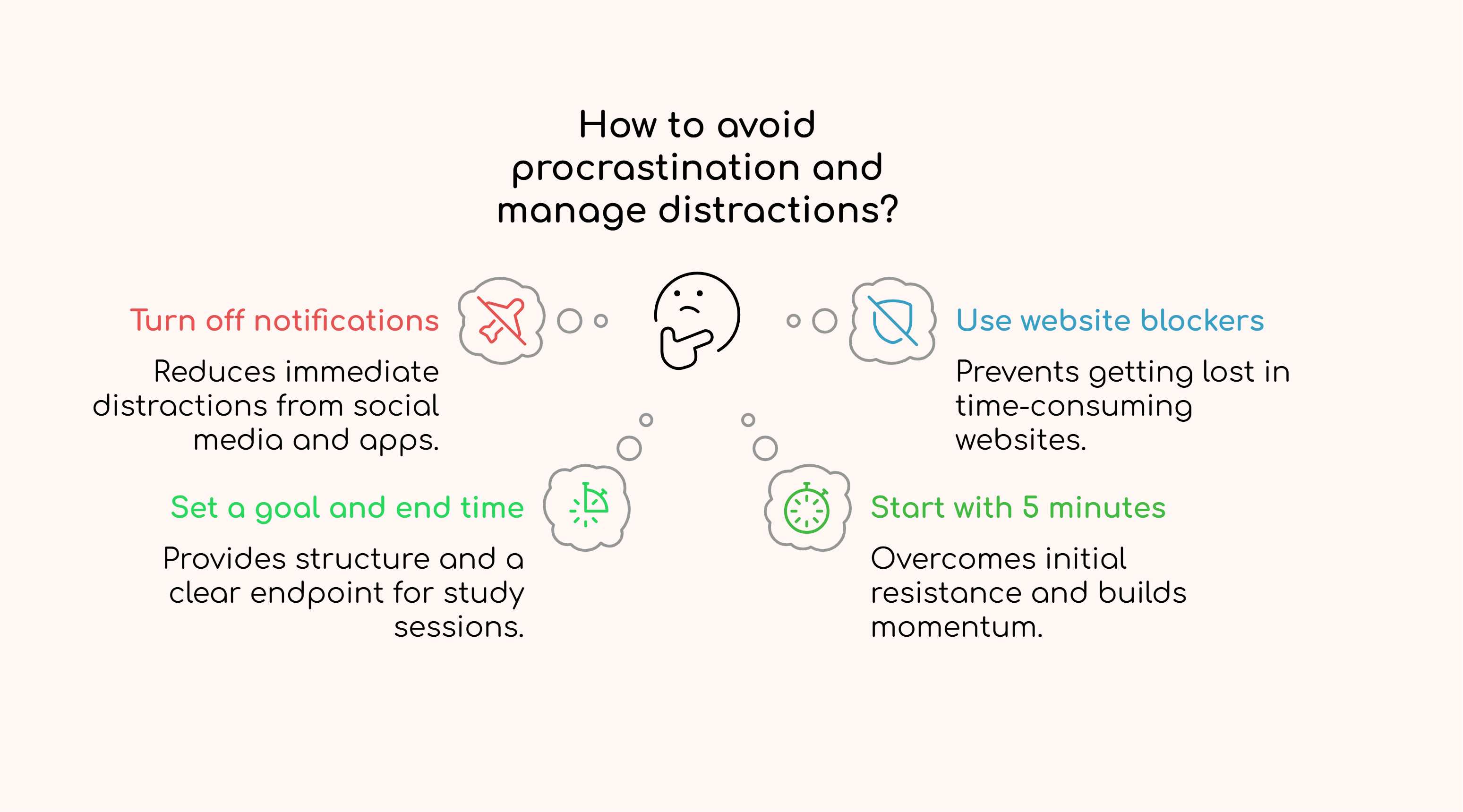
Ah, procrastination—our old frenemy.
I used to start my “study sessions” with just a quick scroll on TikTok... and suddenly it’s two hours later and I know more about dancing frogs than my upcoming exam.
Tips on time management only work if you also manage your distractions.
Here’s what helped me snap out of it:
Turn off notifications (seriously, airplane mode is your friend)
Use website blockers (bye, YouTube rabbit holes)
Set a goal and a clear end time before you begin
And when resistance kicks in? Start with just 5 minutes. Often, that’s enough to kill procrastination’s momentum.
6. Using the Pomodoro Technique and Other Study Methods
Sometimes, structure sparks motivation. That’s where the Pomodoro Technique swoops in to save the day.
This method uses 25-minute focused sprints and 5-minute breaks. It helped me avoid burnout and actually enjoy studying again.
Want to dive deeper? I’ve broken it all down in What Is the Pomodoro Technique? A Complete Guide to the Pomodoro Study Method, Timer, and Benefits.
You can also check out different ways this method can work for every subject in How to Customize the Pomodoro Technique for Studying Different Subjects (and Actually Make It Work).
7. Best Apps and Tools for Student Productivity
Let’s be real—your phone can either be your biggest asset or your worst enemy.
Use it wisely, and it becomes a productivity powerhouse.
My top picks include:
Todoist – for easy task tracking
Forest – for staying focused
Notion or Evernote – for organizing notes and weekly plans
Google Calendar – for time blocking
You can explore all my recommendations in The Best Time Management Apps and Tools to Take Control of Your Day, The Best Task Management Apps to Supercharge Your Productivity, and Best Time Tracking Apps to Boost Your Productivity (Without Losing Your Mind).
Bonus: If planning is your weak spot, try The Ultimate Guide to Note-Taking and Planning Apps: Reviews, Tips & Best Picks — thank me later.
8. Developing Consistent Habits and Routines
Good time management isn’t just about what tool you use—it’s about building the right habits.
Here’s what worked for me (and might work for you too):
Start your day with a morning routine—even just 10 minutes
Review your schedule every night
Batch similar tasks to build momentum
Small, consistent habits turn chaos into calm.
Want a full system? Mastering Your Time: The Best Time Management Techniques for Students covers it all, step-by-step.
9. Time-Saving Tips for Assignments and Exams
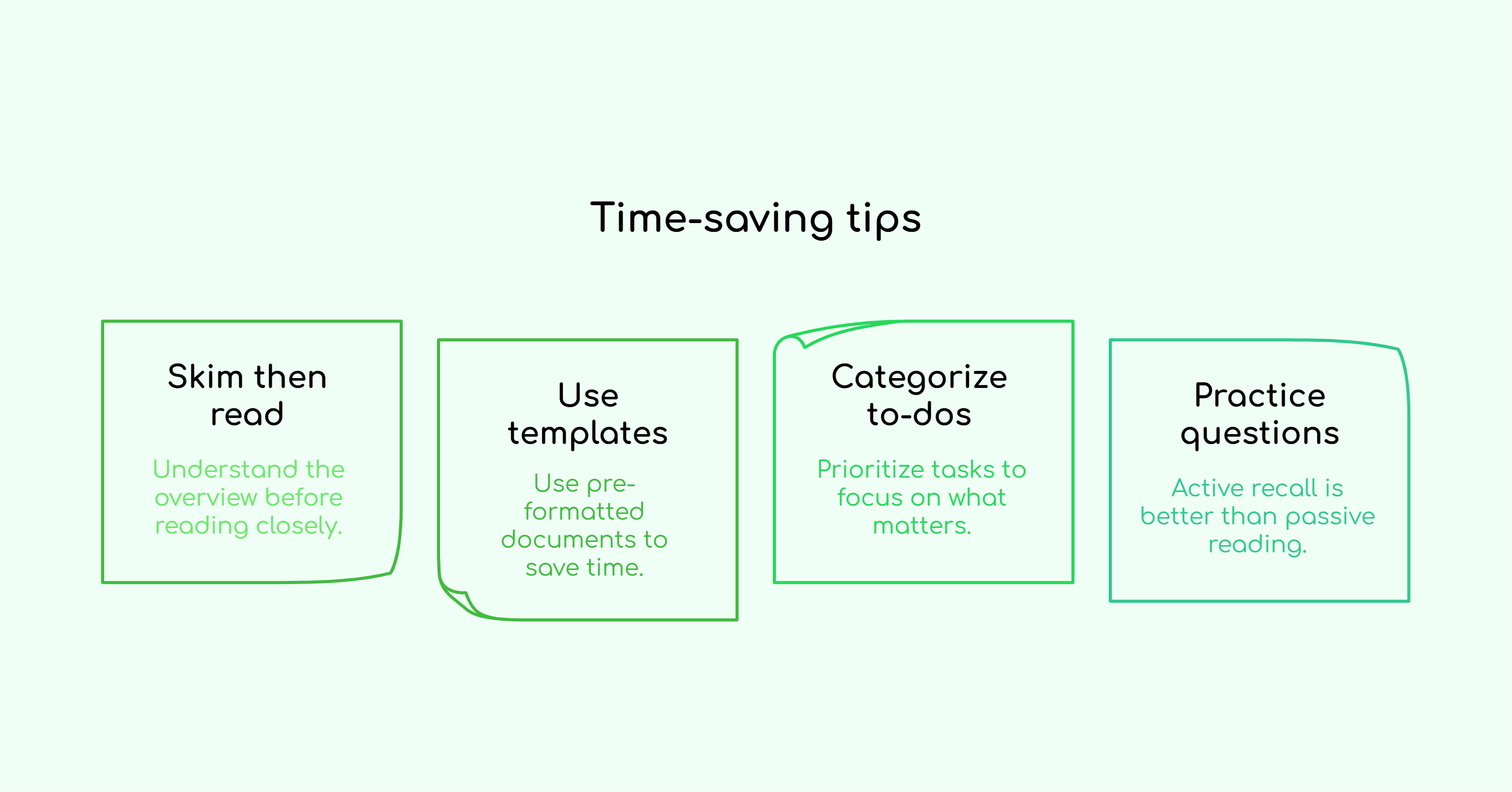
Let me leave you with some quick wins—time-saving tips that’ll help when you’re under pressure:
Skim first, read second – Get the big picture before diving in
Use templates for papers – Saves formatting time
Categorize your to-dos – Focus on high-priority first
Do practice questions over passive reading – It works!
These tips for time management can shave hours off your weekly workload—seriously.
Conclusion: Taking Control of Your Time and Success
Here’s the honest truth: school doesn't get easier. But with the right strategies, you get better at handling it.
By setting goals, building a smart schedule, using the right tools, and creating solid habits, you’re not just managing time—you’re designing your future.
Want to keep building your strategy? Don’t miss How to Build a Personalized Time Management Strategy That Works for You or swing back over to Mastering Prioritization to uplevel your task game.
And if you're hungry for more study tips, stick around—I’ve got plenty where this came from.
Ready to master your time and crush your goals? Save this post, share it with your study group, and start taking control today.
You've got this. ✅